Abstract
1. Chloride liquid ion exchanger micro-electrodes have been used to measure intracellular chloride activity (aiCl) in isolated pieces of frog sinus venosus, atrium and ventricle. 2. aiCl was found to be 35-0 +/- 3-2, 17-3 +/- 0-8 and 17-6 +/- 0-8 mM in sinus venosus, atrium and ventricle, respectively. 3. In atrium and ventricle aiCl is independent of whether the tissue is beating or non-beating. 4. In non-beating ventricle aiCl changes rapidly and reversibly when aOCl is reduced by replacing chloride with glucuronate. 5. ECl calculated from the measured aiCl has been compared with ECl calculated from the constant field equation assuming either constant chloride conductance or constant chloride permeability. 6. It is suggested that chloride is actively transported into the cells in all three kinds of frog heart tissue.
Full text
PDF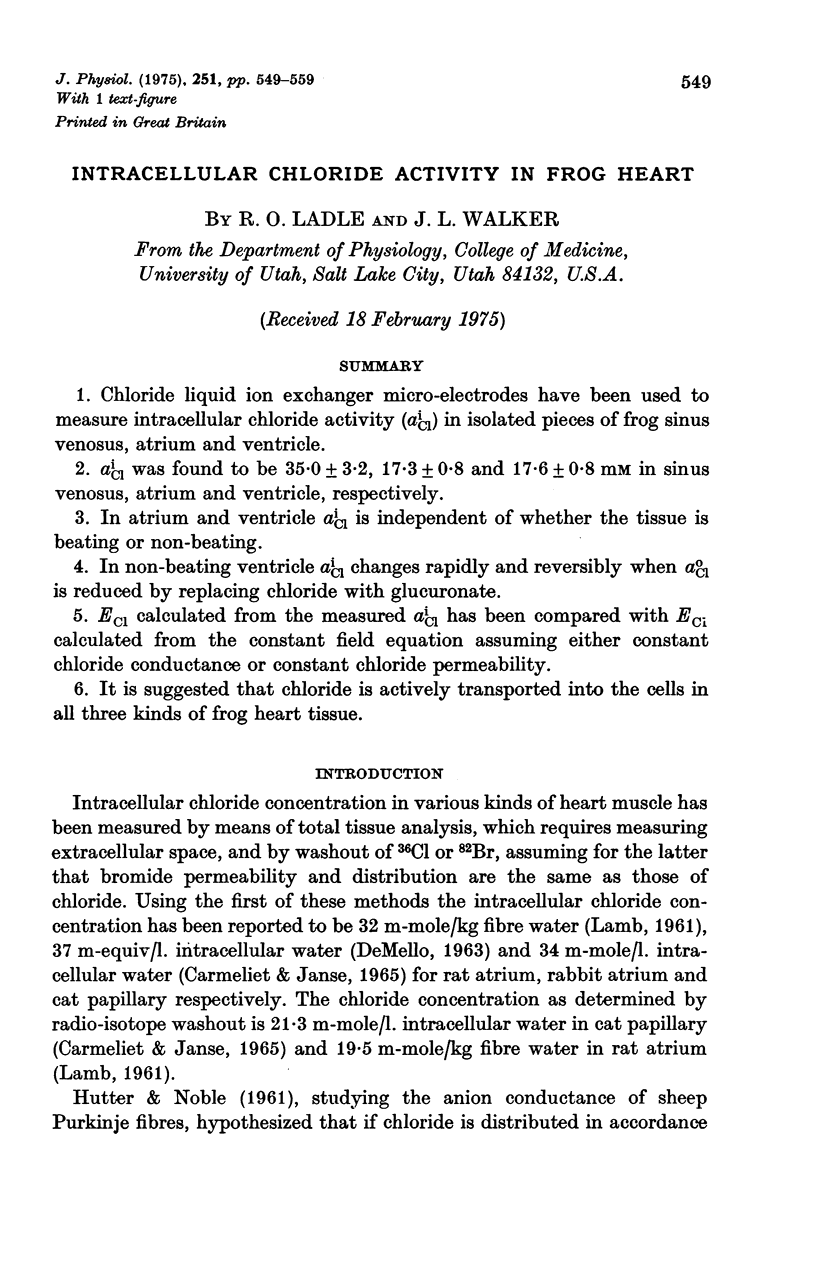
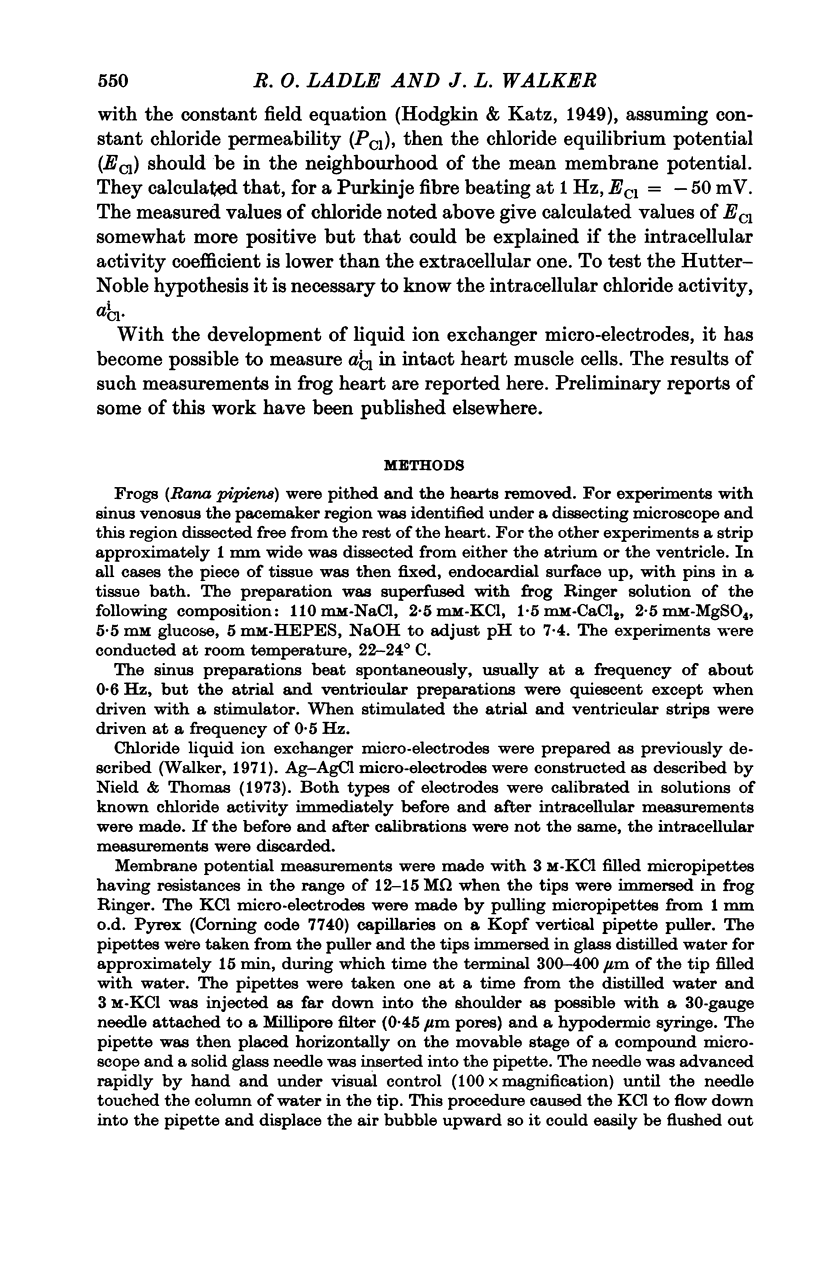
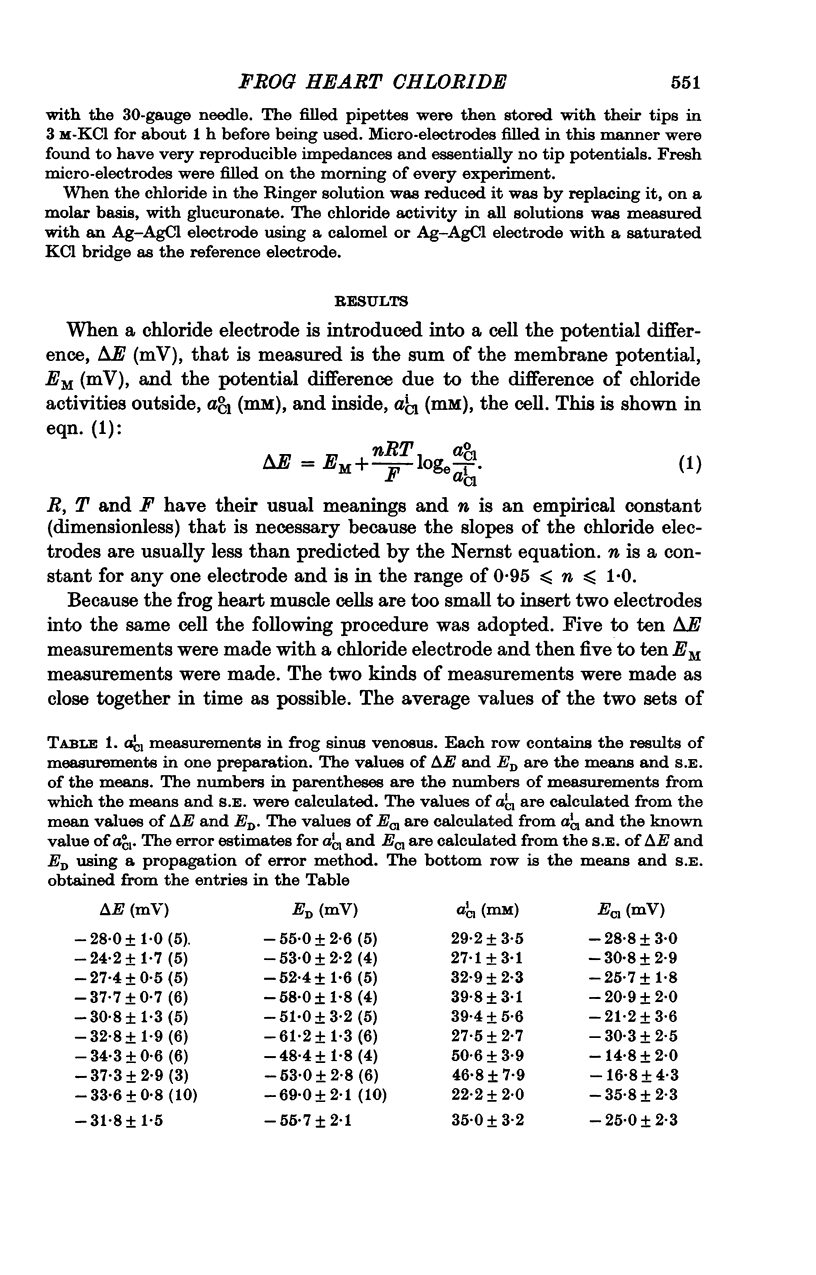
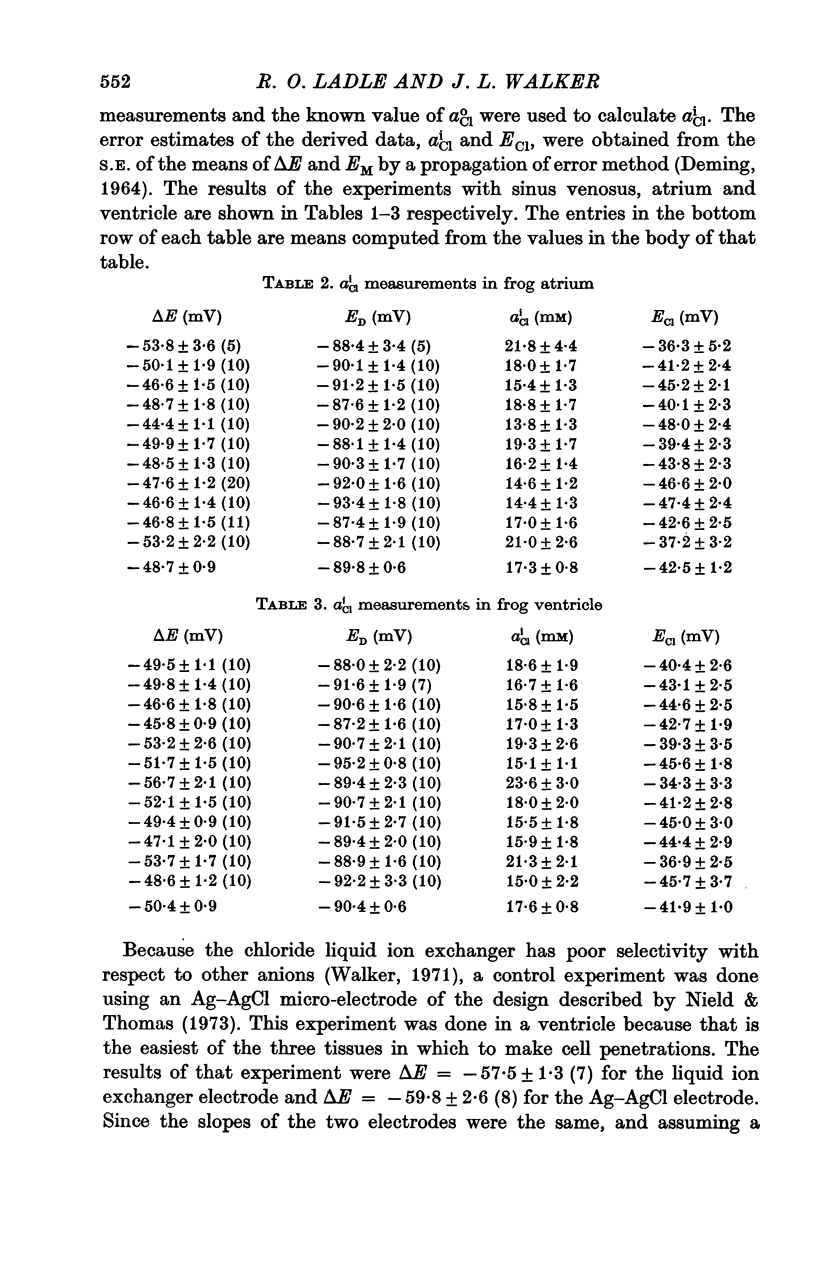
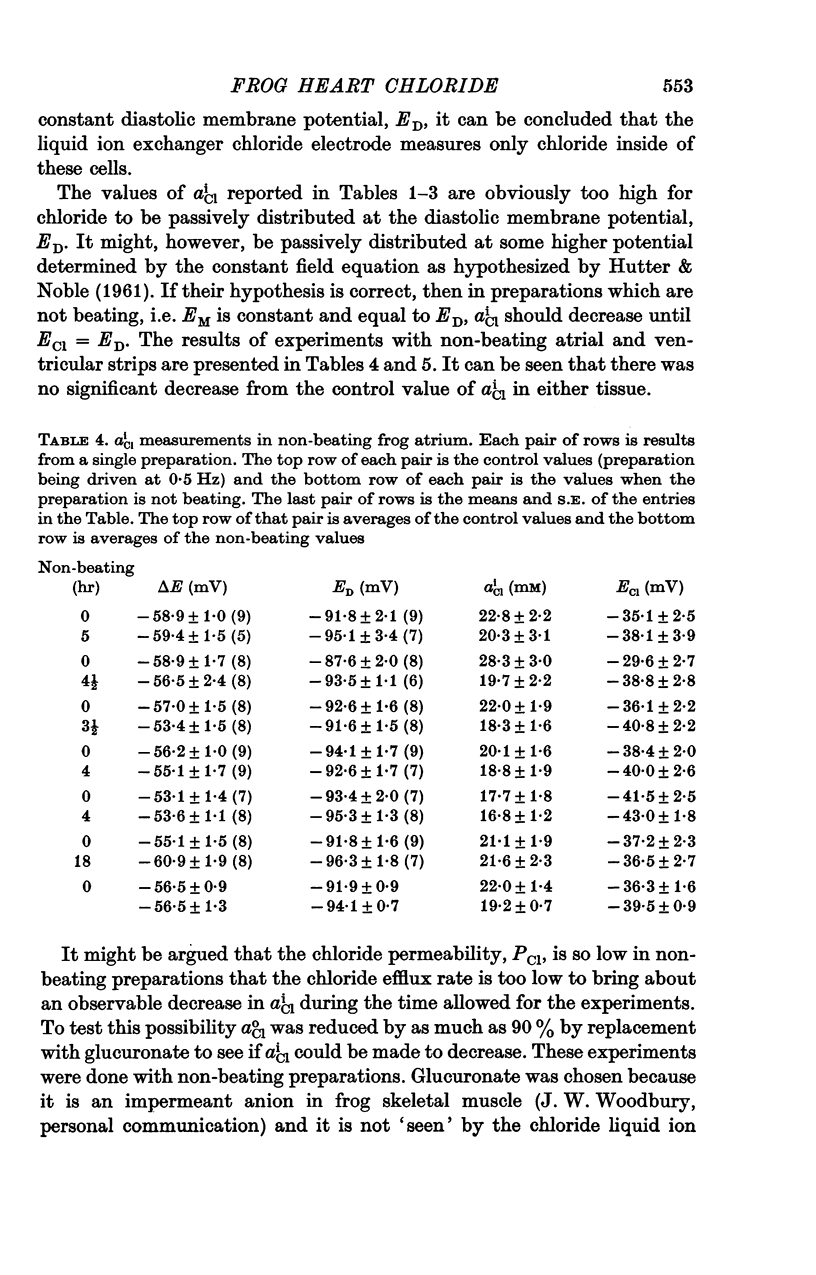
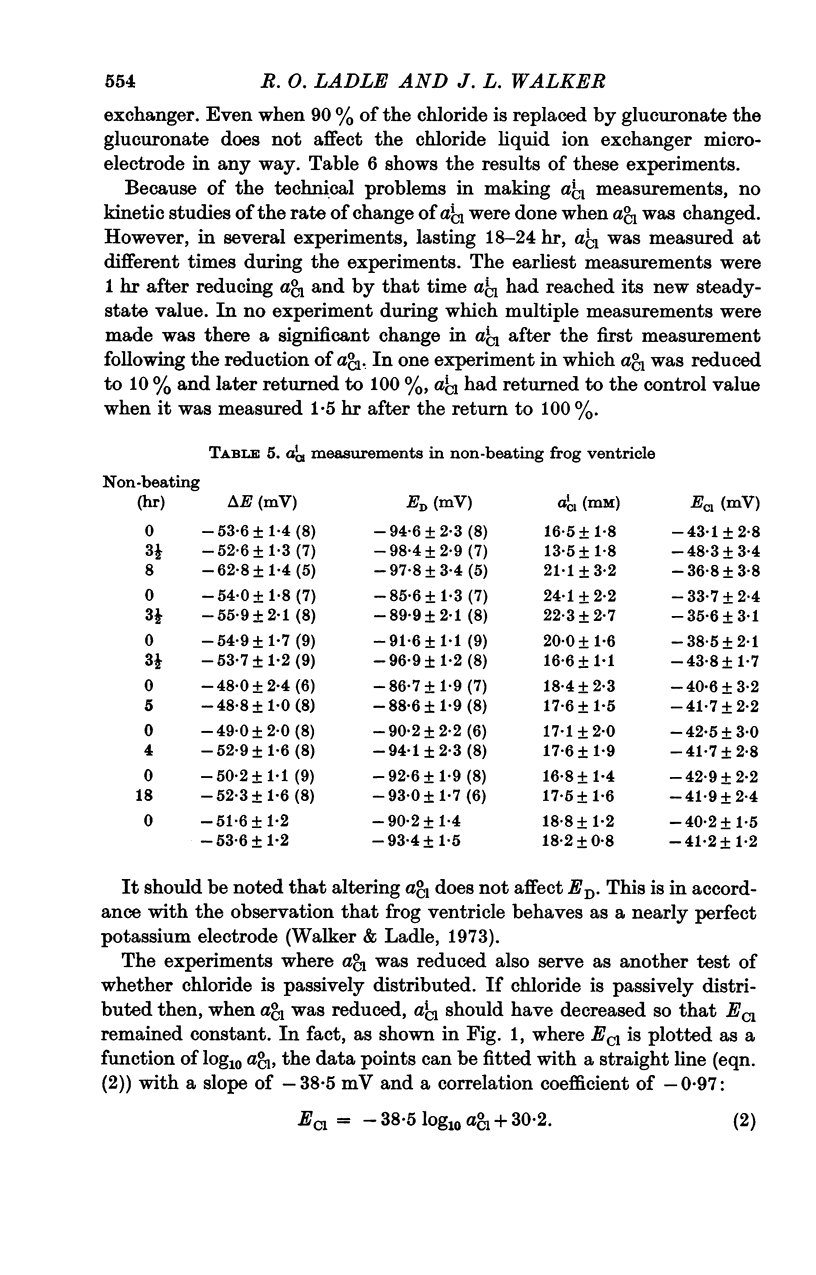
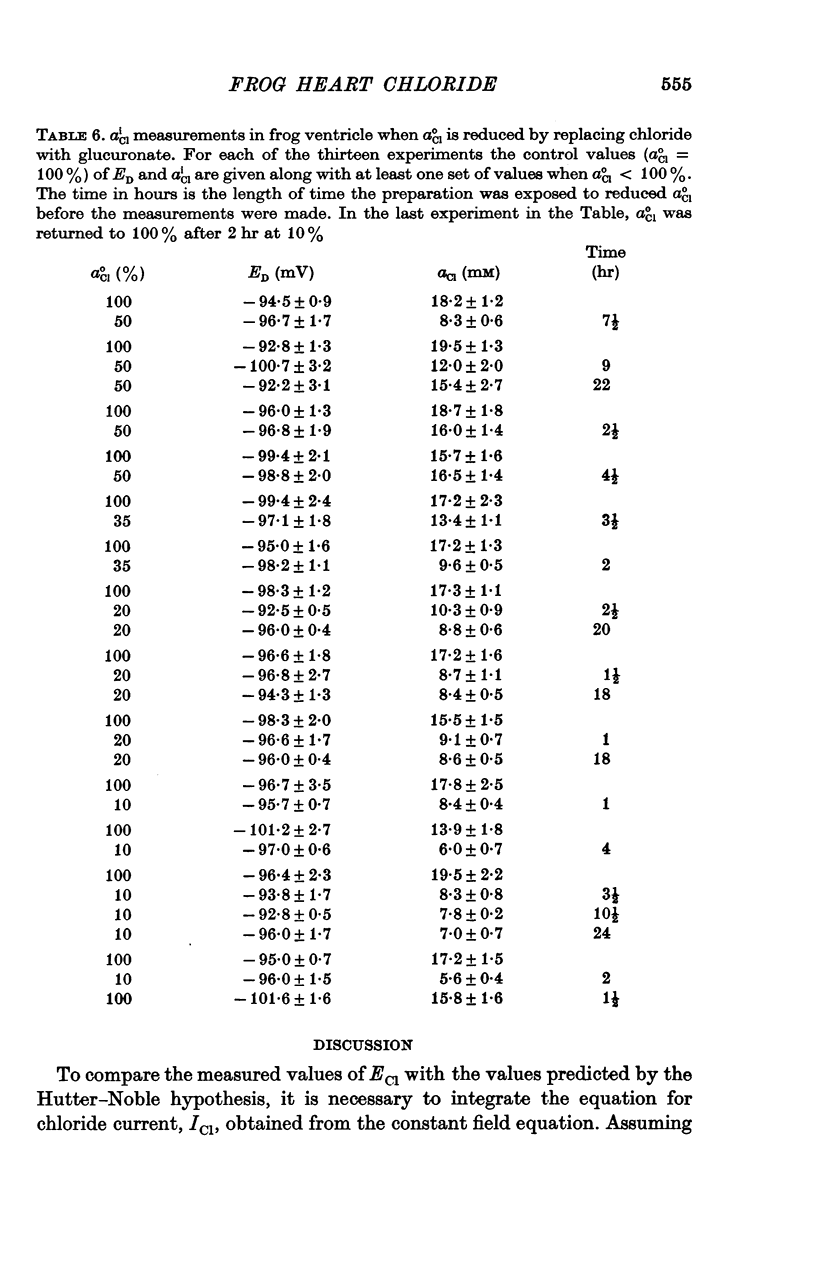
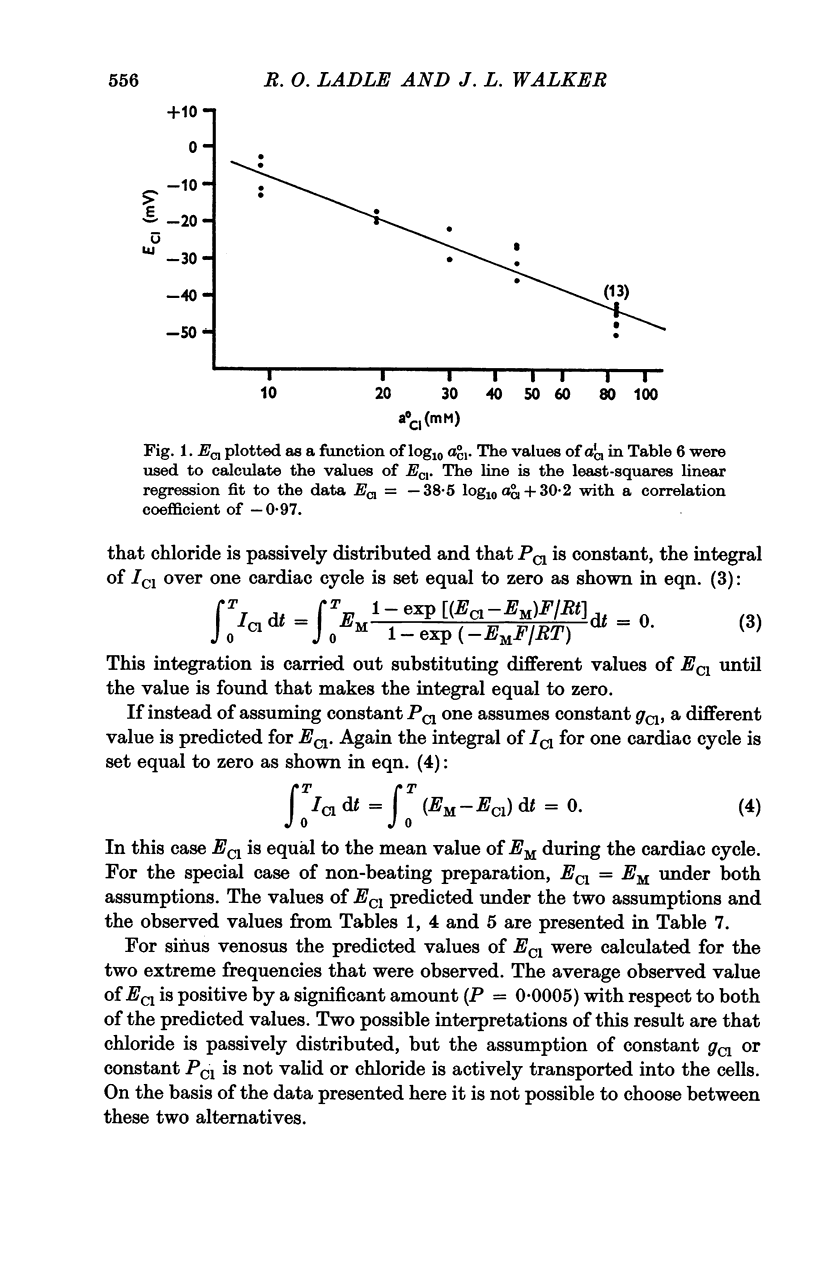
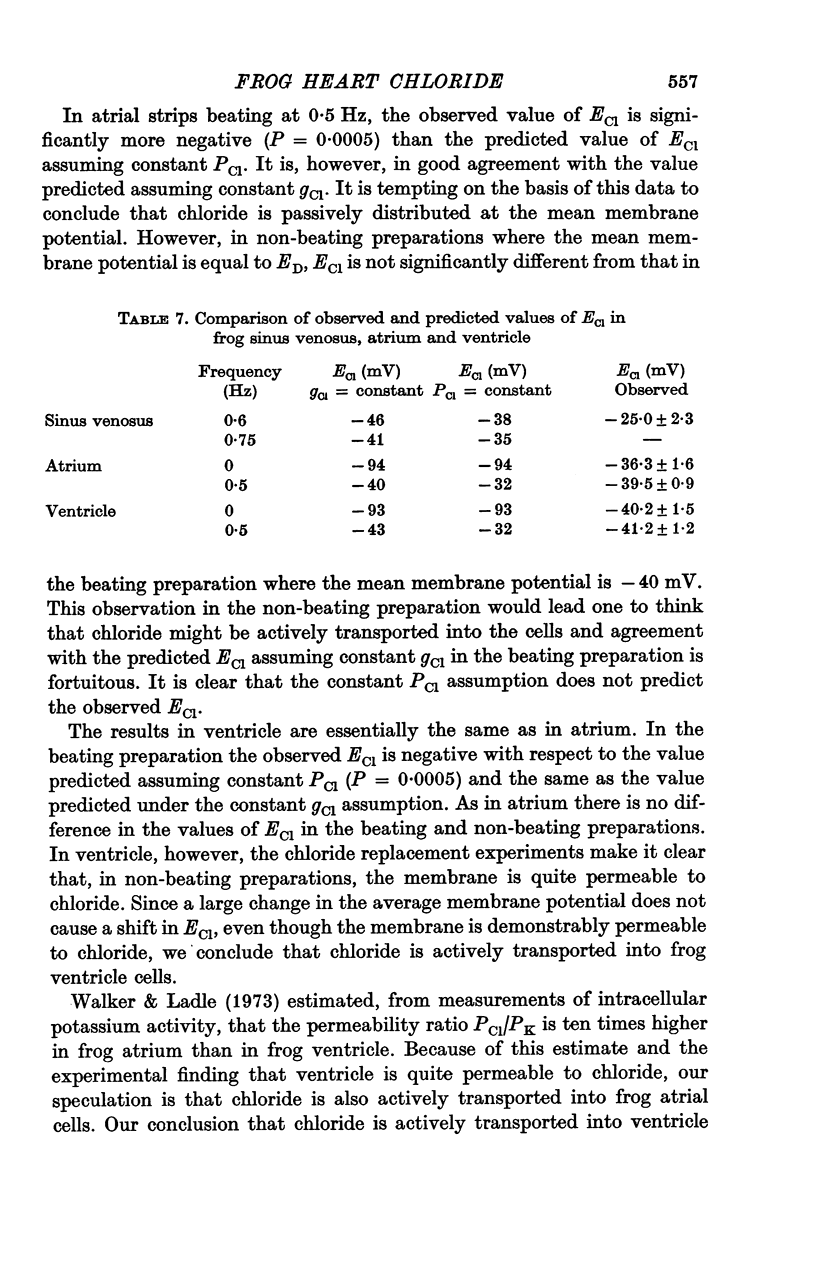
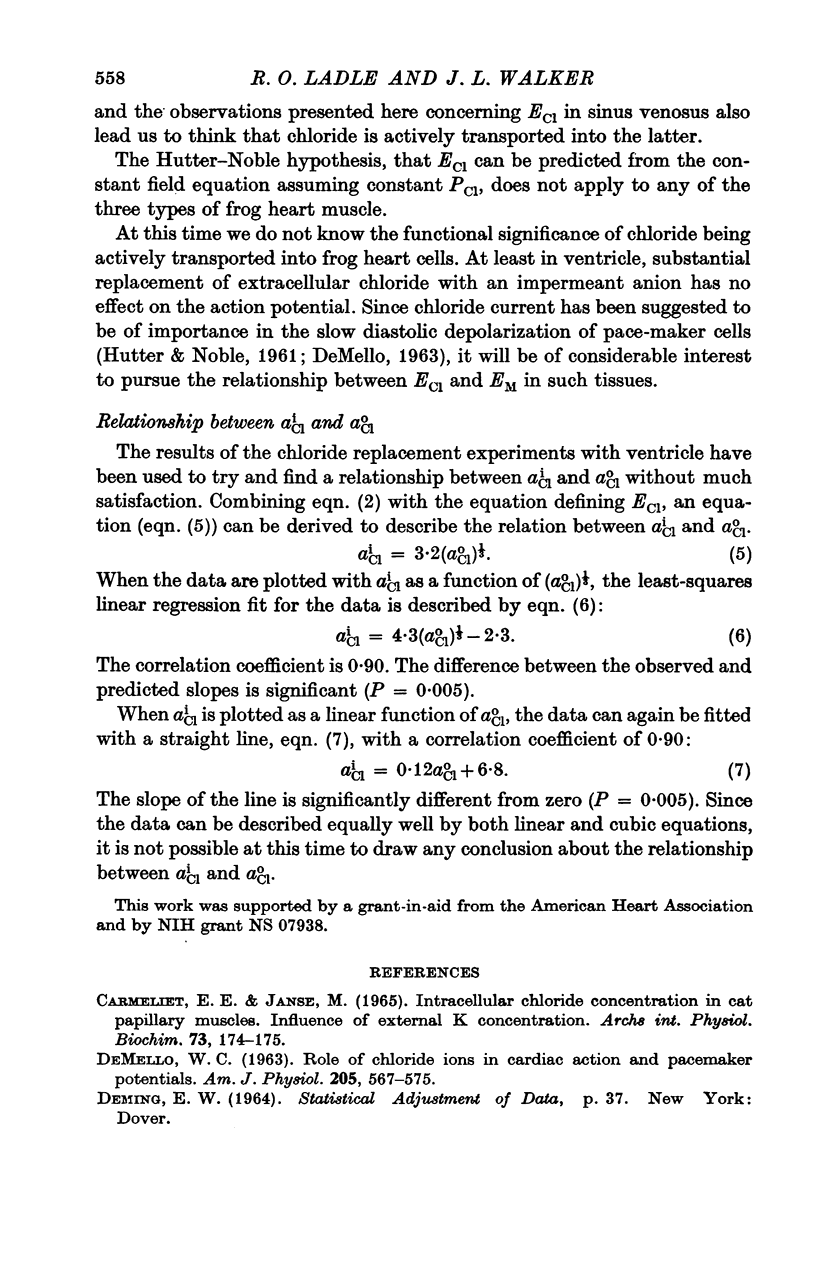
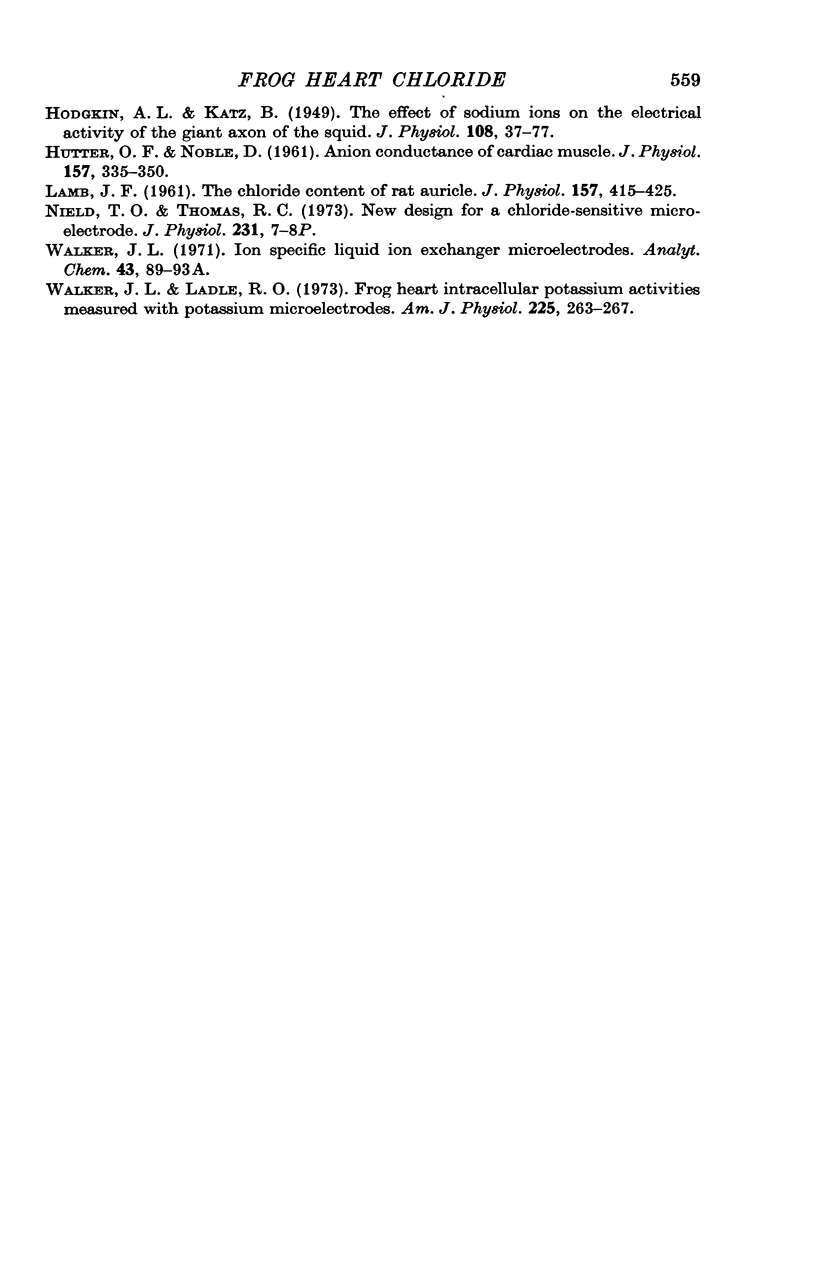
Selected References
These references are in PubMed. This may not be the complete list of references from this article.
- DEMELLO W. C. ROLE OF CHLORIDE IONS IN CARDIAC ACTION AND PACEMAKER POTENTIALS. Am J Physiol. 1963 Sep;205:567–575. doi: 10.1152/ajplegacy.1963.205.3.567. [DOI] [PubMed] [Google Scholar]
- HODGKIN A. L., KATZ B. The effect of sodium ions on the electrical activity of giant axon of the squid. J Physiol. 1949 Mar 1;108(1):37–77. doi: 10.1113/jphysiol.1949.sp004310. [DOI] [PMC free article] [PubMed] [Google Scholar]
- HUTTER O. F., NOBLE D. Anion conductance of cardiac muscle. J Physiol. 1961 Jul;157:335–350. doi: 10.1113/jphysiol.1961.sp006726. [DOI] [PMC free article] [PubMed] [Google Scholar]
- LAMB J. F. The chloride content of rat auricle. J Physiol. 1961 Aug;157:415–425. doi: 10.1113/jphysiol.1961.sp006733. [DOI] [PMC free article] [PubMed] [Google Scholar]
- Neild T. O., Thomas R. C. New design for a chloride-sensitive micro-electrode. J Physiol. 1973 May;231(1):7P–8P. [PubMed] [Google Scholar]
- Walker J. L., Ladle R. O. Frog heart intracellular potassium activities measured with potassium microelectrodes. Am J Physiol. 1973 Jul;225(1):263–267. doi: 10.1152/ajplegacy.1973.225.1.263. [DOI] [PubMed] [Google Scholar]


